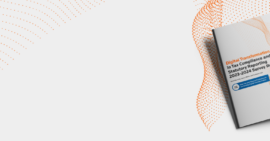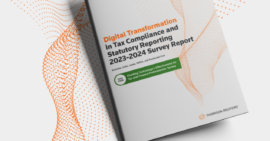The world of indirect tax compliance is a battleground. Ever-changing regulations, resource constraints, and the need for efficiency leave businesses struggling.
Based on a Thomson Reuters survey of 180 indirect tax professionals, this special report explores how upskilling and automation are emerging as powerful allies.
Upskilling the knowledge of staff in indirect tax roles
More than two-thirds of respondents (69%) said they foresee their organisation stepping up training for understanding regulatory changes and technology training to make staff more adept at utilising new technology to handle their workload more effectively.
Technology adoption: A catalyst for efficiency
The survey highlights a strong focus on technology adoption:
- Enhanced tax technology solutions (59%) — investing in improved systems to automate tasks and free up staff for strategic endeavours
- Leveraging AI capabilities (36%) — exploring AI for automating tasks, managing sales taxes, and proactively identifying compliance issues
The rise of the strategic tax advisor
Automation is transforming the role of indirect tax professionals. They will become:
- Reviewers and generals overseeing tax filings and focusing on high-value activities
- Strategic thinkers providing tax advice, risk management, and process design consultations
- Global tax experts managing complex tax requirements across various regions
Embrace change, ensure success
This special report explores the balancing act of adopting technology while preserving expertise. Learn about:
- Careful transition planning — minimising disruption and ensuring a smooth adoption of new technology
- Maintaining staff expertise — upskilling programs and knowledge-sharing are essential
- Addressing upfront investment — careful budgeting is required for new technologies and training programs
Download the special report today and discover how to conquer the evolving landscape of indirect tax compliance.


